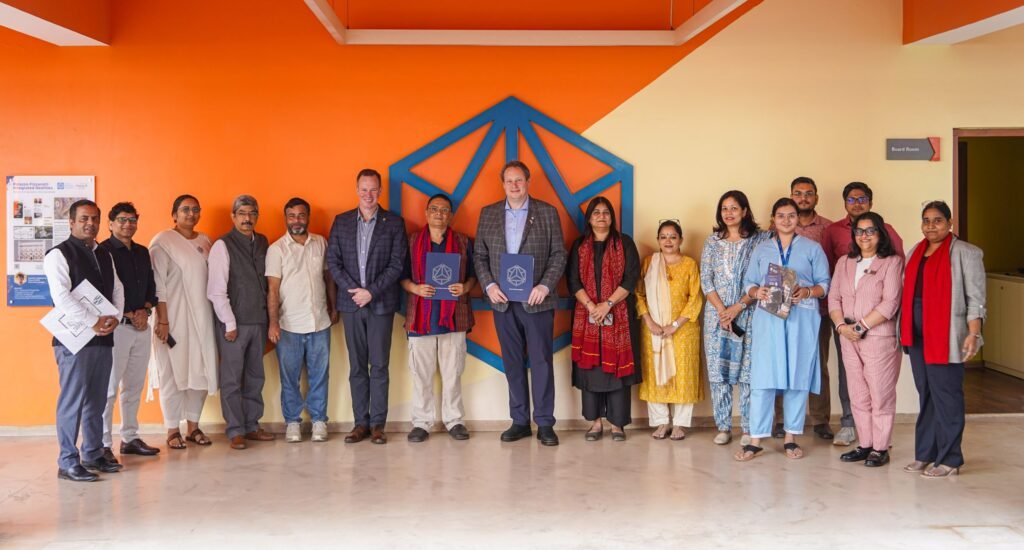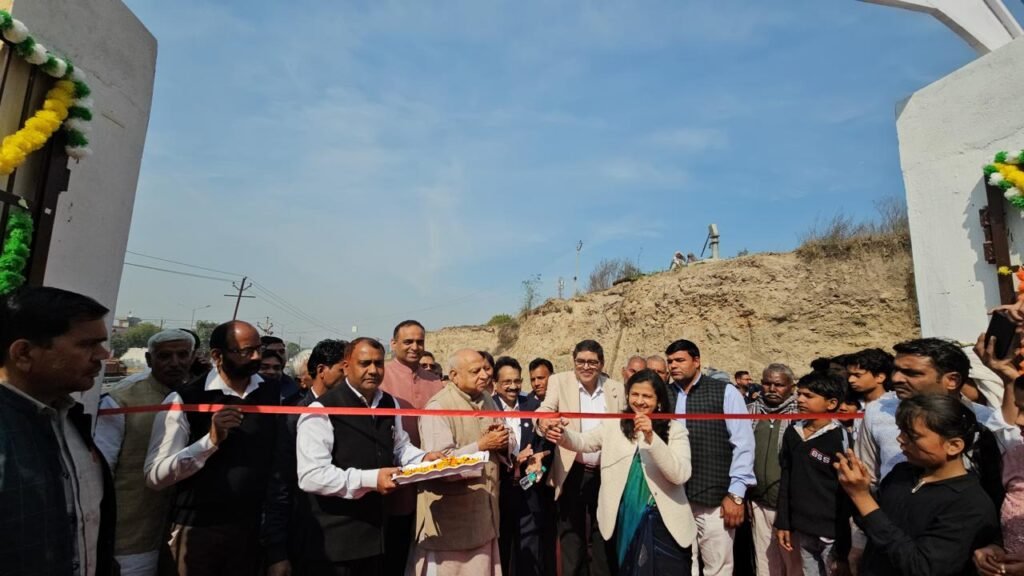The stakeholders have their hopes pinned on the interim budget for GST slab reduction, building an ecosystem for enhanced AI integration and much more.
Finance Minister Nirmala Sitharaman is all set to present the interim budget for the fiscal year 2024-25 on February 1. Expectations are running high among the stakeholders who hope that the fiscal decisions propel the journey of the education sector towards the goals set to be achieved.
The education sector was allocated Rs. 1.12 lakh crore in the previous budget (fiscal year 2023-24) announcement which is nearly an 8.26 percent increase in the allocation in comparison to the 2022-23 allocation.
The future of Edtech came to the fore with the impact of COVID-19 hitting the education sector as hard as it could. The challenges of accessibility for students during and after the pandemic found answers with the flexibility to choose the online, offline or hybrid mode of learning through digital learning.
The stakeholders in the Edtech sector have their hopes pinned on the interim budget for GST slab reduction, building an ecosystem for enhanced AI integration in education, improving accessibility in rural areas and much more.
“In view of the upcoming interim Union Budget, we would like to appeal to the government to increase the education sector’s budget and reduce the GST slab from 18% to 5% on educational products and services. Our aim is to establish a strong foundation for the country’s children, particularly those from economically disadvantaged backgrounds. Additionally, given the evolving world and our shifting approach to education, driving a change to ensure affordable and quality education at scale needs more collaboration for public and private sectors. For this, reducing the GST on educational services would also remove financial strain on parents, promoting affordability. Apart from this, focusing on collectively enhancing youth skills to increase employability and reduce skilling gaps is imperative for the Indian economy’s growth,” says Prateek Maheshwari, Co-Chair, India Edtech Consortium (IEC), Co-Founder- Physics Wallah (PW).
According to experts, students from rural regions can benefit from the reduction in tax slabs by making quality education affordable for all.
“For India to become a developed nation by 2047, we need to transform our school and college systems. NEP 2020 encourages schools to move beyond books to provide multi-modal education (audio-visual, activity-based learning, etc.). However, all technology and learning hardware to schools are currently taxed at either 18% or 28%. GST relief on school solutions will make goods and services for education more affordable and will help foster educational innovation and transformation, thereby vastly improving access to affordable and high-quality education for all,” says Sumeet Mehta, Co-founder & CEO, LEAD Group.
“With technological advancements happening every minute, relying just on a college education is not enough for the Indian youth. They will have to keep updating and upskilling themselves to utilise their full potential in strengthening our economy. Removal or Reduction of GST rate from upskilling programs in the upcoming Union Budget will help solve this by democratising access to quality education, fostering innovation and employability. Formalising the edtech sector and streamlining operations through regulations and policies instils confidence among stakeholders, fostering an environment conducive to growth. These changes ultimately align with the national goal of developing a more responsive education system, equipping the workforce in this knowledge-driven economy to meet the evolving demands of the job market,” says Mohan Lakhamraju, Founder and CEO of Great Learning.
With the influence of AI gripping stronger, it is imperative to include AI, AR, VR, metaverse, etc technologies integrated into the education sector which aligns with the National Education Policy (NEP) 2020.
“India is at the cusp of a massive transformation. The Education sector has an important role to play in this pathway towards becoming a Viksit Bharat by 2047, not just by developing the intellectual pool but also by contributing to the socio-economic development of the country. The goals outlined in the NEP 2020 and the ever-evolving industry demands have resulted in a paradigm shift from one-way teaching to a learning-by-doing methodology. This has resulted in a recalibration of the academic curriculum with the inclusion of emerging technologies namely, AI, AR/VR, metaverse, cybersecurity etc. With recent policy developments, there has been a significant focus by the Government towards the internationalisation of higher education to foster student exposure, international mobility, research and innovation. This will require a convergence of world-class infrastructure, the curriculum of global standards and increased industry partnerships. In this context, it is anticipated that the Budget 2024 will not only address the immediate short-term concerns but will also set the trajectory of the future knowledge landscape,” says Dr Dhara Thakore, Head of Incubation and Office of Career Services, Anant National University.
Integrating emerging technologies in education, both in school as well as the higher education landscape is the need of the hour to give our educational sector a globalised makeover. Upskilling and reinforcing the student community in the job market requires institutional and infrastructural changes as mentioned in NEP 2020.
“ The pandemic has underscored the importance of technology in education. The budget should focus on bridging the digital divide by ensuring access to digital devices and internet connectivity, especially in remote areas. According to the Unified District Information System for Education Plus (UDISE+) report for 2021-22, only 34% of all schools in India have internet access, leaving a significant 66% without it. Strategic investment in Internet facilities, e-learning platforms, digital content, blended teaching-learning facilities, and teacher training in digital pedagogies will be instrumental in making education more inclusive and future-ready,” says Niru Agarwal, Trustee, Greenwood High International School.



